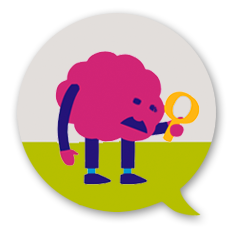Severity: Warning
Message: session_start(): Failed to initialize storage module: user (path: /var/www/session)
Filename: Session/Session.php
Line Number: 143

Have you ever noticed that when you focus on a task, you tend to remember it better? You probably recall taking your driving test – where you drove, the thrill or terror of taking off when the lights went green – yet you would likely struggle to remember the details of driving your car to the shops last week.
When we pay attention, our brain gets a boost of a biochemical called noradrenaline that strengthens the pathways of cells as they process the information we are taking in, explains Prof Ian Robertson, Professor of Psychology at Trinity College Dublin.
“What we do and think and feel can shape our brains,” he says. “And attention is a gateway for these changes – if you don’t attend to experiences then they won't imprint themselves in your brain. You could say that attention and awareness are the pivot between mind and brain, they are the connecting point.”
Harnessing attention
Prof Robertson became interested in how we can use attention to tweak and strengthen brain circuits in a positive way when he worked with people with brain injury. If the person focused on moving particular parts of the body, they could improve the dynamics of brain circuits and help the brain to adapt to the injury.
More recently he has been looking at how ‘biofeedback’ training can help older people and people with attention-deficit disorder to give themselves an attention boost. And he has found that if older people receive a mild electrical stimulation through probes on the skin to the right side of the forehead, it can improve their awareness of errors.
DIY – challenge, change and learn
We don’t all have access to biofeedback training or electrical stimulation for the brain, but there’s plenty we can do to improve our attention in everyday life, explains Prof Robertson.
“If you know there’s a moment where you are likely to be forgetful, like putting your keys down when you come in the door, talk to yourself as you do the task to make yourself more attentive,” he says.
More generally, there are three golden rules for maintaining mental agility into older age, he adds. “A lot of people can mitigate the effects of ageing through challenge, change and learning. Challenge means doing things that are not too easy and not too hard, change is not always doing the same things with the same people, trying to expose your brain to novel situations and learning is doing just that, learning new things like how to use a new computer program, play a new piece of music or speak another language.”
Shaping the brain from inside and out
As well as running a busy research lab at the Trinity College Institute of Neuroscience, Prof Robertson has also written books about the brain. Mind Sculpture helped to popularise the concept that the brain is adaptable and can change in adulthood according to our experience, while Mind’s Eye looked at the different ways in which we think and approach problems. His most recent book, The Winner Effect, examined the effects of power and societal structures on the brain.
Prof Robertson is now working on new ways to measure the early signals in the body that offer clues about brain health and awareness. His lab recently discovered that measuring how a person’s pupils dilate as they carry out a task offers a way to assess his or her level of awareness, possibly because that brain ‘attention’ chemical noradrenaline affects the pupil as well as strengthening links between brain cells.
And noradrenaline is something that we want in our brains as we experience life and age, notes Prof Robertson. “If you wanted to design a drug to strengthen the brain, noradrenaline would be it,” he says. “Although too-high levels, for instance in chronic stress, can have the opposite effect, in moderate levels it boosts brain function. The hypothesis is that all this challenge, change and learning over your lifetime leads to healthy, moderate infusions in your brain with millions of spurts of noradrenaline, which strengthens the pathways. It all comes together with attention – if you are attentive and curious and trying to learn things, that has a beneficial effect.” 
Share this page: